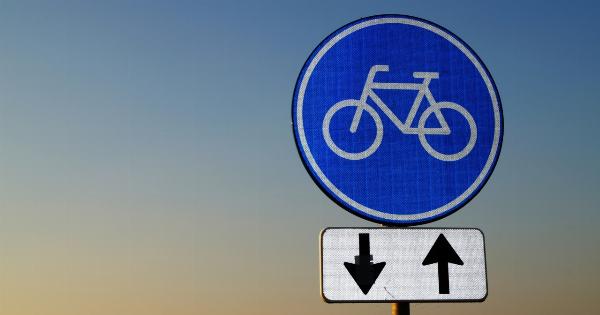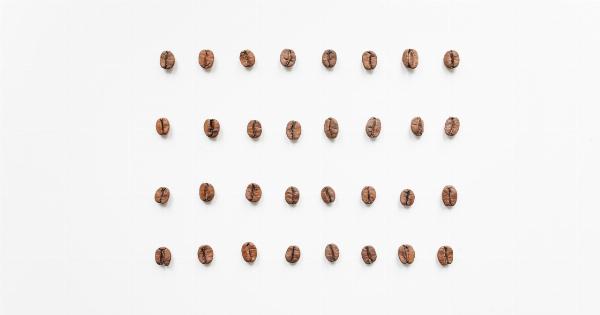A bloated spleen, medically known as splenomegaly, is a condition that occurs when the spleen swells beyond its normal size.
The spleen is an organ located on the left side of the abdomen, just below the ribcage, and is responsible for filtering blood, fighting infections, and storing blood cells. A bloated spleen can lead to serious health issues if left untreated, so it is important to recognize the signs and seek medical attention if necessary.
Signs and Symptoms
There are several signs and symptoms of a bloated spleen that people should be aware of:.
1. Pain or discomfort in the left upper abdomen
One of the most common symptoms of a bloated spleen is pain or discomfort in the left upper abdomen. This pain can be dull or sharp and may worsen when taking deep breaths or when the stomach is full.
2. Feeling full quickly or loss of appetite
People with a bloated spleen may also experience a feeling of fullness in the stomach, even after eating only small amounts of food. They may also lose their appetite altogether as a result.
3. Fatigue or weakness
As the spleen works harder to filter blood and fight off infections, people with a bloated spleen may feel more tired or weak than usual, even if they are getting enough rest.
4. Anemia
A bloated spleen can lead to a decrease in the number of red blood cells in the body, a condition known as anemia. Symptoms of anemia include fatigue, weakness, and shortness of breath.
5. Frequent infections
Since the spleen plays a role in fighting off infections, people with a bloated spleen may be more likely to get sick. This can include frequent infections of the respiratory system, urinary tract, and skin.
6. Easy bruising or bleeding
If the spleen is enlarged, it can sometimes trap and destroy blood cells, leading to easy bruising or bleeding. This can also occur if the spleen becomes damaged or ruptures.
7. Jaundice
In severe cases, a bloated spleen can cause jaundice, a condition where the skin and whites of the eyes turn yellow. This occurs when there is an excess of bilirubin in the bloodstream, which the liver and spleen typically filter out.
Causes
There are many potential causes of a bloated spleen, including:.
1. Infections
One of the most common causes of splenomegaly is an infection, such as mononucleosis, hepatitis, or bacterial infections. In some cases, a bloated spleen can be a symptom of a more serious infection like malaria or HIV.
2. Liver disease
Another common cause of splenomegaly is liver disease. As the liver becomes damaged, blood flow to the spleen can increase, causing it to become enlarged.
3. Blood disorders
Certain blood disorders, such as leukemia, lymphoma, and sickle cell anemia, can also cause the spleen to become bloated.
4. Cancer
In some cases, a bloated spleen can be a symptom of cancer that has spread to other parts of the body, such as the lymph nodes or bone marrow.
Treatment
The treatment for a bloated spleen will vary depending on the underlying cause and the severity of the symptoms. In some cases, the condition may resolve on its own, while in others, medical intervention may be necessary.
Some treatment options may include:.
1. Medication
If the bloated spleen is caused by an infection, antibiotics or antiviral medication may be used to treat it. In some cases, medication may also be prescribed to reduce inflammation and pain.
2. Blood transfusions
If the bloated spleen is causing anemia, blood transfusions may be necessary to replenish the body’s red blood cell count.
3. Surgery
In severe cases, surgery may be required to remove the spleen. This is known as a splenectomy and is typically only done if the spleen is severely damaged, ruptured, or causing life-threatening complications.
Prevention
While it may not be possible to prevent all cases of splenomegaly, there are certain steps people can take to reduce their risk:.
1. Practice good hygiene
Washing hands regularly and avoiding contact with people who have contagious illnesses can help reduce the risk of infection.
2. Maintain a healthy lifestyle
Eating a healthy diet, getting enough rest, and exercising regularly can all help support a healthy immune system and reduce the risk of infections.
3. Get vaccinated
Vaccinations can help protect against certain infections, such as hepatitis and pneumococcal disease, that can lead to splenomegaly.
Conclusion
A bloated spleen can cause a range of uncomfortable symptoms and lead to serious health complications if left untreated.
By recognizing the signs and seeking medical attention when needed, people can help ensure that they receive the treatment and care they need to manage this condition.






























